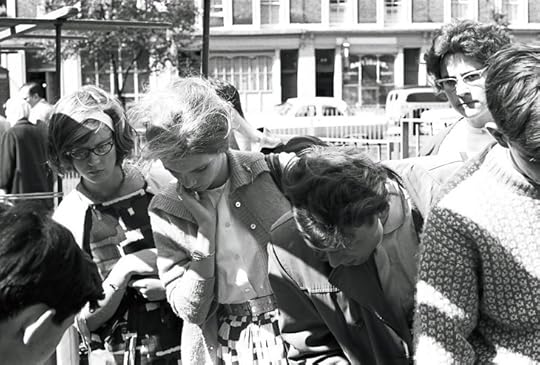Alan Jacobs's Blog, page 262
March 8, 2018
farewell to Twitter?
(Cross-posted, with edits, from Text Patterns)
A few weeks ago I deleted my private Twitter account — it was a good way to keep up with friends, but I found it impossible to control it (via disabled RTs, muted strings, etc.) well enough to prevent the frustration from exceeding the pleasure. That left me just with my public account, which I have been using primarily for linking to my own writing (e.g. blog posts like this one) and to cool things I’ve read by others. But I really really want to be out of the Twitter ecosystem completely — for obvious reasons: everybody knows that Twitter is horrible, there’s no need to belabor that point — so I have now deleted the public account too.
My chief concern with being off Twitter altogether is that I’ll be unable to provide a signal boost to people who are writing or making interesting things that other folks might not notice — and for that reason I could, I must admit, come back. So when Twitter notifies me, 29 days from now, that my account is about to be deleted, I might have a moment of weakness and log back in. (Twitter does prompt you when your account is about to be deleted … doesn’t it?)
I am aware, of course, that most people who read this blog get to it via my Twitter links, so I am perhaps making myself more marginal than ever. Who will even see this post? But if you happen to see it, and want to see more, please try RSS. It’s great. Most of the cool things I read or see are posted here, or on Text Patterns, or on my Pinboard page. And all of those have RSS feeds.
P.S. Have I written before about quitting Twitter? Have I quit Twitter before? Yes on both counts. I am pathetically irresolute.
UPDATE (a few days later): Several people emailed me pleading with me to come back to Twitter, just for linkage. I guess for a great many people RSS is just a foreign technology. And since I can set up automatic posting to Twitter, why not? So that little experiment didn’t last long….
The Waco Empire
The newest outpost of Chip and Joanna Gaines’s local empire is Magnolia Table, and Teri and I had breakfast there this morning. It was really good. The restaurant is located in the building that for many years housed the Elite Café, and it’s nice to see the predecessor acknowledged on one wall:

It’s a lovely space:

And the food was really good:

But I was fascinated by how thoroughly designed (and therefore, of course, branded) everything in the place is:



(That leather folder is what they bring your check in.) Imagine the money that went into all this! Such attention to detail is simply impossible for most new businesses, but the Gaineses have made so much money from Fixer Upper and the Magnolia Silos — which gets more visitors than the Alamo — that they can make the investment up front.
We moved here in 2013, before the first season of Fixer Upper, and it has been quite remarkable to see a city changed so much, in so short a time, by the energy and ambition of two people. Houses and hotels are being built, restaurants and bars opened, existing properties renovated — the city of Waco has even begun to realize that they can now fix some of the terrible roads around here. It’s wonderful … and yet it feels so, so fragile. Here’s hoping that the cult of Chip and Jo lasts long enough to bring permanent improvements to this shabby old town.
March 6, 2018
dignity
I went down where the vultures feed
I would’ve gone deeper, but there wasn’t any need
Heard the tongues of angels and the tongues of men
Wasn’t any difference to me
Chilly wind sharp as a razor blade
House on fire, debts unpaid
Gonna stand at the window, gonna ask the maid
Have you seen dignity?
I’M AN ARTIST YOUR RULES DON’T APPLY
March 5, 2018
March 3, 2018
Oxford and Cambridge
It was very interesting next day to see Cambridge. In many ways it is a contrast: there is something, I can hardly say whether of colour or of atmosphere, which at once strikes a more northern, a bleaker and a harder note. Perhaps the flatness of the country, suggesting places seen from the railway beyond Crewe, has something to do with it. The streets are narrow and crowded: the non-university parts depressing enough. Some things – such as King’s College Chapel, in which I was prepared to be disappointed – are indeed beautiful beyond hope or belief: several little quadrangles I remember, with tiled gables, sun dials and tall chimnies like Tudor houses, were charming. One felt everywhere the touch of Puritanism, of something Whiggish, a little defiant perhaps. It has not so much Church and State in its veins as we. The stained windows in the Halls show figures like Erasmus and Cranmer. Oxford is more magnificent, Cambridge perhaps more intriguing. Our characteristic colour is the pale grey, almost the yellow of old stone: theirs the warm brown of old brick. A great many Cambridge buildings remind one of the Tower of London.
— C. S. Lewis, undergraduate at University College Oxford, writing to his father after making his first visit to Cambridge (8 December 1920).
March 2, 2018
bad trailers
For what it’s worth, I have never seen trailers that look as bad as Ready Player One and A Wrinkle in Time. Both of them give every indication of being absolute turkeys — Ishtar-level turkeydom. Yeeessh.
Venice in snow
Portobello Road Market (1960s)
March 1, 2018
The Year of Our Lord 1943
Alan Jacobs's Blog
- Alan Jacobs's profile
- 533 followers








